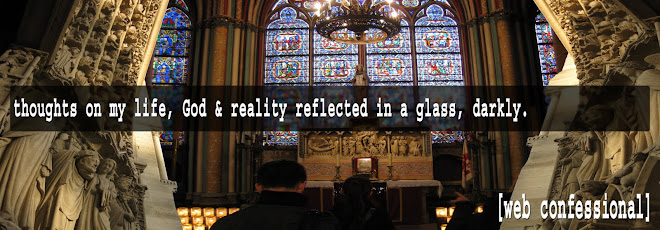my closing paragraph in my last post wasn't intended to trash the supernatural or miracles. i acknowledge the role of "miracles" in scripture as signs pointing to the coming kingdom of God; and i actually think we need to re-understand what miracles are, but that's a different post. my point in de-emphasizing the supernatural is that i think that most people view miracles and the like as the point of religion or faith. and, in fact, many people are atheists or agnostics because they do not believe in miracles and therefore cannot believe in God. thus i think the high emphasis that christians have historically placed on miracles and supernatural happenings have been damaging to the ultimate mission of the church.
i say this also because the more i think about how all of reality fits together and what christianity teaches about the human story, the more i realize how miraculous everything really is. for we, just like everything else around us, make up something that transcends ourselves.
our purpose, our function, is to be God's representation on earth. our purpose is to rule in his place. yet, adam screwed that up. but christ is the second adam. christ modeled what we were made to do, and now we are now to communally and individually embody him. we make up christ's body. communally, joined in agape, we are the closest thing on earth to its creator.
chaos--> sub-atomic particles--> atoms--> molecules--> cells--> tissues--> organs--> organ systems--> human--> church--><-- God
yesterday, a cousin told my wife how disappointed she is in her father because he doesn't go to church every week. if i were there i would have asked, "why? what's the purpose of going to church? is there an attendance quota we need to meet?"
i wonder how different things would be if we stopped seperating the supernatural from the everyday. i think about how my cousin's warpped understanding of what the church is affects her father's understanding of it. then i think about how the warpped understanding the church has had about itself affects the world's understanding of it. just sayin.
Baccalaureate 2017: Make Your Music
6 years ago
